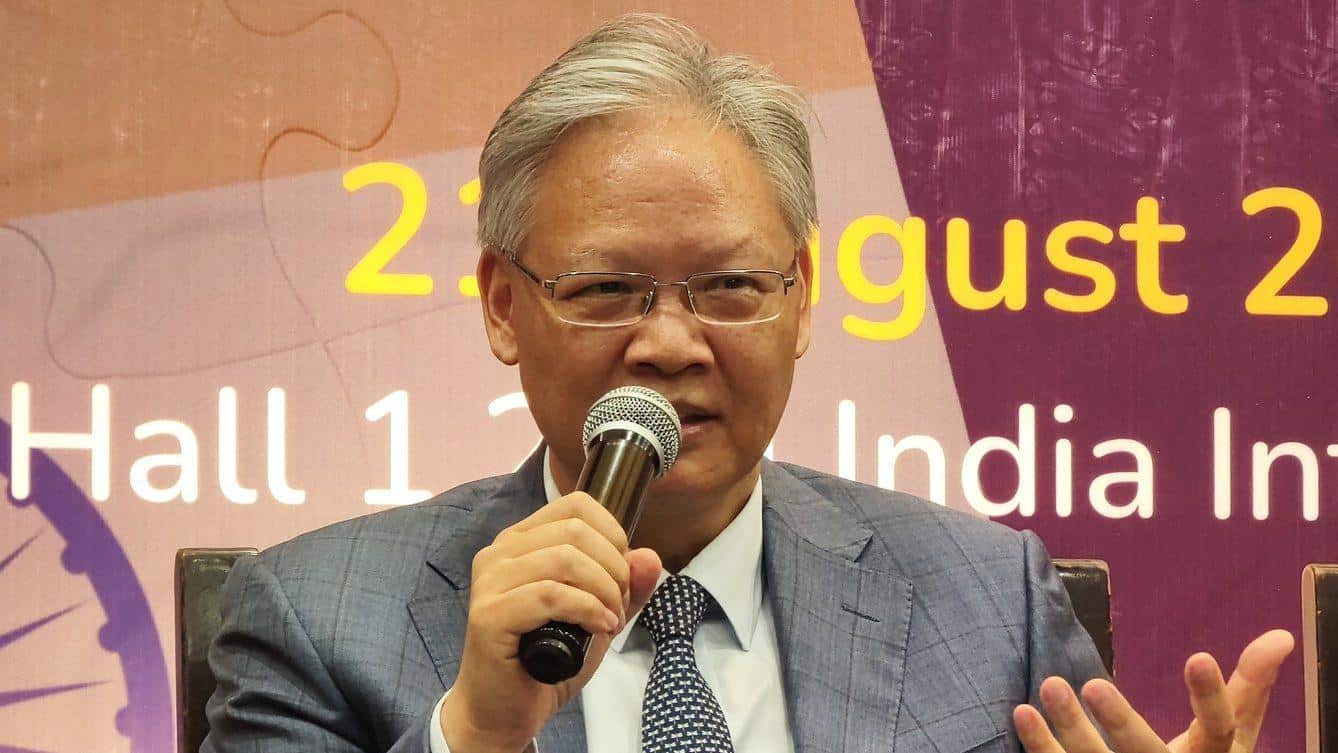Chinese Envoy Criticizes 50% Tariffs on India, Calls Them ‘Unfair and Unreasonable’ Amid US Free Trade Benefits

China has expressed strong opposition to the United States’ recent imposition of a 50% tariff on Indian imports, labeling the action as “unfair” and “unreasonable.” During a seminar commemorating the 80th anniversary of the Chinese victory in the war against Japanese aggression, China’s ambassador to India, Xu Feihong, criticized the U.S. for using trade as a weapon. He emphasized the need for robust India-China relations to foster global development, highlighting the shared history and potential for cooperation between the two nations.
China’s Criticism of U.S. Tariffs
In a pointed address, Xu Feihong condemned the U.S. tariffs on Indian goods, asserting that Washington has historically benefited from free trade but is now weaponizing it to impose high costs on other nations. He stated, “The United States has long benefited from free trade. But now it is using tariffs as a weapon to demand exorbitant prices.” Xu’s remarks come in the context of escalating economic tensions, particularly following the U.S. government’s decision to impose an additional 25% tariff on Indian imports as part of secondary sanctions related to India’s purchase of Russian crude oil. This move effectively doubles the existing tariff, raising it to a total of 50%.
Xu underscored the importance of India and China working together as two of the world’s largest emerging economies. He reiterated that both nations should prioritize their development and support each other in achieving mutual success. This sentiment aligns with discussions between Chinese President Xi Jinping and Indian Prime Minister Narendra Modi, who have previously emphasized the significance of cooperation for a prosperous future in Asia.
U.S. Response and Justifications
In response to the tariffs, U.S. President Donald Trump defended the measures, asserting that they are necessary to address trade imbalances. He indicated that the secondary sanctions on India are aimed at curtailing Russia’s oil exports, which he views as a significant issue. During a press conference, Trump remarked, “Would you say that putting secondary sanctions on India, the largest purchaser outside China, they are almost equal? Would you say there was no action?” He further warned that India could face serious consequences if it continues to import oil from Russia.
Trump’s comments reflect a broader strategy to leverage tariffs as a means of rebalancing trade relationships. He described the U.S.-India trade dynamic as a “one-sided disaster,” claiming that American companies have struggled to penetrate the Indian market due to high tariffs. He noted that India has recently proposed a “no tariff” deal in light of the U.S. tariff increases, suggesting that the negotiations could lead to a more equitable trade relationship.
Implications for Global Trade
The escalating trade tensions between the U.S., India, and China have significant implications for global trade dynamics. As the U.S. continues to impose tariffs and sanctions, countries like China are likely to respond with their own measures to protect their economic interests. Xu’s emphasis on the need for strong India-China ties highlights the potential for collaboration in the face of external pressures.
The situation is further complicated by the ongoing geopolitical landscape, where nations are increasingly navigating complex relationships influenced by trade policies and sanctions. The dialogue between China and India could serve as a counterbalance to U.S. actions, fostering a more cooperative approach to economic development in Asia. As both nations seek to enhance their economic standing, the outcome of these discussions will be closely monitored by global markets and policymakers alike.
Future Prospects for India-China Relations
Looking ahead, the future of India-China relations will depend on how both countries navigate the challenges posed by U.S. trade policies. Xu’s call for mutual support and cooperation reflects a desire to strengthen ties that could benefit both economies. As emerging markets, India and China have the potential to lead in global economic development, provided they can overcome the hurdles presented by external pressures.
The ongoing dialogue between the two nations will be crucial in shaping their economic strategies and responses to U.S. tariffs. By prioritizing collaboration and shared goals, India and China may be able to create a more balanced and equitable trade environment that fosters growth and stability in the region. As the global economic landscape continues to evolve, the actions taken by these two countries will play a pivotal role in determining the future of international trade relations.
Observer Voice is the one stop site for National, International news, Sports, Editor’s Choice, Art/culture contents, Quotes and much more. We also cover historical contents. Historical contents includes World History, Indian History, and what happened today. The website also covers Entertainment across the India and World.
Follow Us on Twitter, Instagram, Facebook, & LinkedIn

